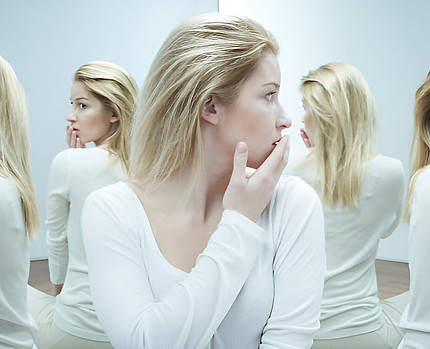
What Are Bipolar Disorders?
Bipolar Disorders are a group of mood disorders characterized by changes in mood that oscillate between depression (sadness) or elevated mood (mania). Bipolar disorders exist on a spectrum and can further be classified into more specific diagnoses such as Bipolar I, Bipolar 2, and cyclothymia.
What Are The Symptoms Of Bipolar Disorder?
Bipolar disorder usually starts with a depressive episode, which is often misdiagnosed as "unipolar depression" or "major depression disorder". It is only later in life when evidence of hypomanic and manic symptoms emerges that the correct diagnosis of bipolar disorder is made. Unfortunately, during this time, misdiagnosis results in ineffective treatment with antidepressants that may even worsen the mood and trigger hypomania/mania, leading to little to no response in symptoms.
In the depressive pole of bipolar disorder symptoms include sadness, irritability, hopelessness, worthlessness, fatigue, low energy, increased or decreased appetite, too much or too little sleep, inability to enjoy day-to-day things, and thoughts of suicide can be experienced.
During a manic episode, an individual may experience increased energy, restlessness, irritability, rapid thoughts and speech, feeling euphoric or grandiose, engaging in multiple projects at once, engaging in pleasure-seeking behaviors that may be risky and impulsive such as abusing substances, increased sexual behaviors, distractibility, and even loss of touch with reality (psychosis). When an individual experiences similar symptoms without significant distress or dysfunction, they are said to be experiencing hypomania.
Mixed episodes are characterized by a combination of both mania/hypomania and depression occurring simultaneously. For instance, feeling energetic but sad at the same time, producing a feeling of intense irritability.


How Are Bipolar Disorders Diagnosed?
Bipolar disorders are diagnosed by licensed mental health professionals. At Mind Glow Solutions, our psychiatric providers believe that these disorders cannot be fully understood through diagnostic criteria alone. Rather, they must be approached from a biopsychosocial and cultural perspective. To accurately diagnose bipolar disorders, our providers conduct a comprehensive psychiatric evaluation that includes collecting your psychiatric and medical history, social and personal history, as well as gaining a true understanding of your lived experience.
How Are Bipolar Disorders Treated?
Psychotherapy
Cognitive-behavioral therapy (CBT): This type of therapy can help individuals recognize and change negative thought patterns and behaviors that contribute to mood swings.
Medication
Mood stabilizers: These drugs help control mood swings and prevent episodes of mania or depression examples include lithium, lamictal, and depakote.
Antipsychotic medications: These can help manage symptoms during manic or mixed episodes. Examples include olanzapine, quetiapine, risperidone, cariprazine and aripiprazole.
Antidepressants: While antidepressants are sometimes used to treat depressive episodes, they are often prescribed cautiously in bipolar disorder because they can potentially create mood instability. Often they are prescribed in combination with a mood stabilizer or antipsychotic.
Benzodiazepines: These may be prescribed to manage anxiety symptoms and agitation that can accompany a manic/hypomanic episode, they may also work to augment the efficacy of mood stabilizers and antipsychotics by decreasing the excitation occurring throughout the brain.


Complementary | Integrative | Holistic | Non-Pharmacological Intervention
Lifestyle Modifications: Engaging in regular physical activity, maintaining a balanced diet, getting adequate sleep, and avoiding substances like caffeine and alcohol can support overall well-being and may complement OCD treatment.
Stress Management Techniques: Learning relaxation techniques such as deep breathing, progressive muscle relaxation, guided imagery, yoga, meditation, therapeutic massages, and acupuncture can help individuals manage stress and improve overall mental health.
Self-Care Strategies: Establishing a consistent daily routine, setting boundaries such as learning when to say NO, practicing self-compassion, being kind to oneself, journaling, fostering relationships with supportive family and friends, spending time in nature, and engaging in hobbies are all ways to help improve overall mental health.
